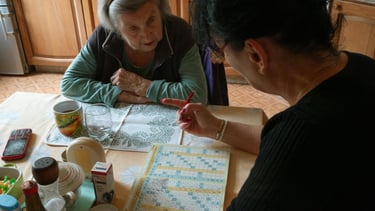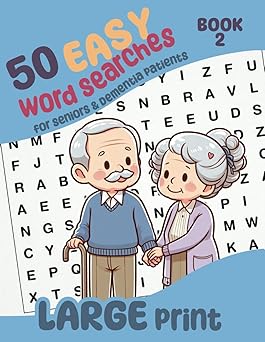The Role of Social Interaction in Slowing Cognitive Decline
Social interaction stimulates multiple parts of the brain, and it gives a sense of belonging and identity.
Social interaction is vital for people of all ages and conditions, yet it is often overlooked as a method of supporting elders with dementia. Engaging in a meaningful way stimulates cognitive function, improves mood, and has the potential to slow cognitive decline in dementia patients. For people with dementia, regular social interaction will reduce feelings of isolation and give a sense of belonging.
Here are some ways in which social engagement benefits the mind:
The cognitive benefits of social engagement
Interacting with others engages several brain functions, including memory, attention, and language. Even the simplest conversations require the processing of information and recalling words, which can help to maintain cognitive function. Social activities will also help to resist depression, which is common in dementia. It releases stress by encouraging the production of oxytocin, the feel-good hormone. Studies show that elders who have regular social interactions experience slower cognitive decline than those who are isolated.
Family visits and storytelling
Regular visits from family are incredibly uplifting. I remember my mother’s state improving significantly when I took my family to visit her. She would go from frantic and confused to calm and happy. Reminiscing about familiar events, such as family trips and childhood memories, triggers memories and provides cognitive stimulation. Consider using props, such as old photographs or souvenirs, to trigger memories. Browsing through a family album together will maintain bonds and improve mood. Group activities can have the same effect; this could take the form of social groups, sing-alongs, art classes, and memory cafes.
Structured social activities allow a dementia sufferer to engage with their peers and perhaps share common experiences. Simple activities and games, such as cards, stimulate the brain and encourage laughter and connection.
Virtual Socializing for accessibility
For those with mobility issues or perhaps people living in rural areas, modern technology can be a game-changer. In personal experience, when my mother was in the early stages of dementia, I provided her with an iPad, and we would regularly have video calls where she could interact with her grandchildren. As her symptoms worsened and she became unable to use the iPad, family members would facilitate these calls.
Video calls can be arranged by caregivers and could take the form of discussion groups or book clubs. Any positive interactions will be beneficial and can be as simple as reminiscing or telling stories.
Always tailor activities to the patient. You will get a feel of which activities work and which may cause confusion or frustration.
Social interaction for elders with dementia is great for well-being, and gives family members peace of mind to see meaningful relationships and interaction happening despite the onset of dementia.


Useful Resources
Easy Nature Wordsearch
An easy, large print wordsearch, suitable for elders with dementia or other forms of cognitive decline.
A dementia-friendly wordsearch book with a range of simple themes.
An easy word search book with Christian-themed puzzles. Large print and dementia-friendly.
Easy Wordsearch
Easy Christian Wordsearch
Connect
© 2025. All rights reserved.




